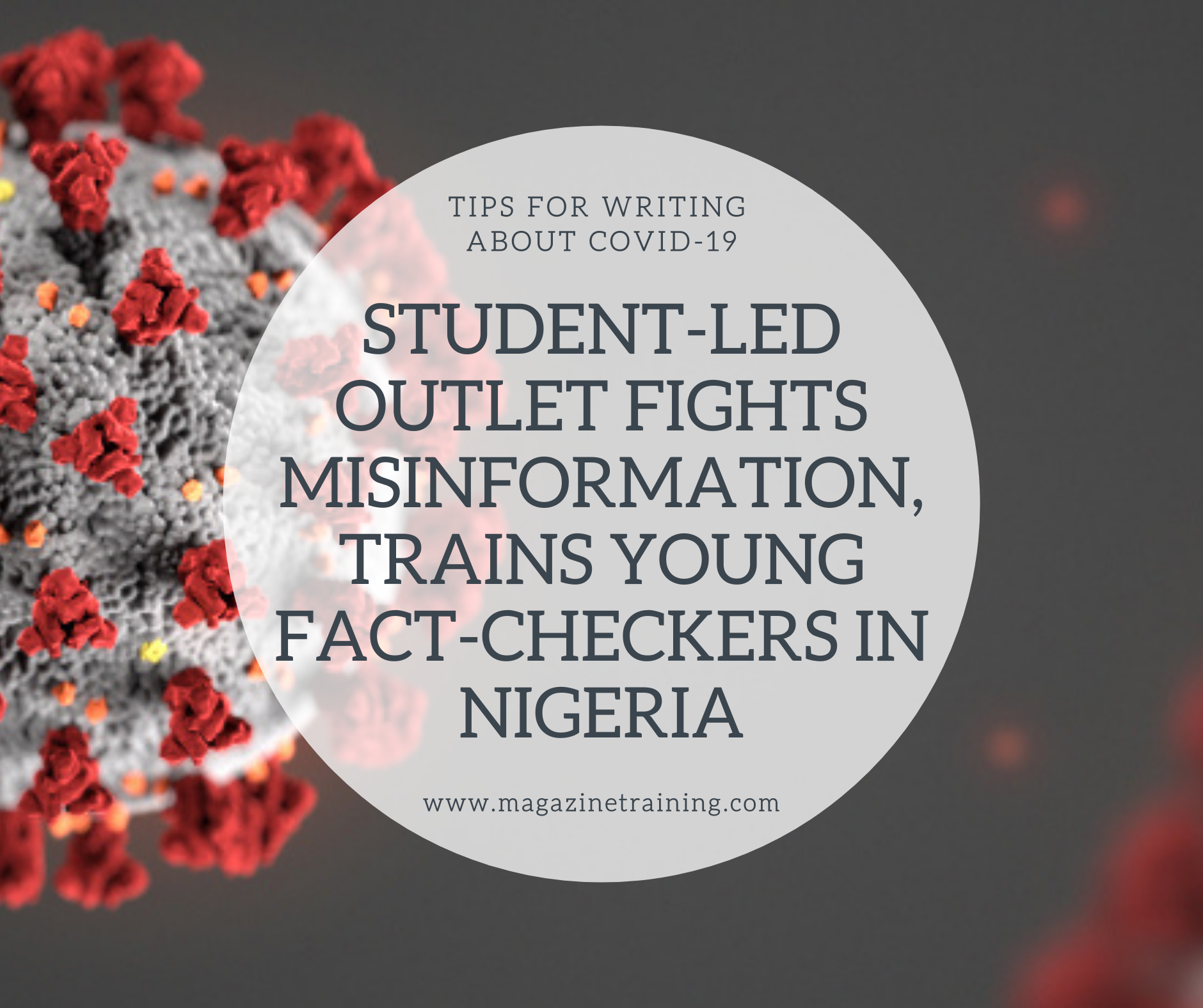
At first, the novel coronavirus seemed as remote as the distance between East Asian, China to West African, Nigeria. But as soon as Nigeria recorded the country’s first case in late February 2020, a panic ensued.
It didn’t take long after the pandemic arrived in the country that misinformation around it skyrocketed. Hoaxes like that of a Nigerian taxi driver threatening to spread coronavirus across Nigeria and the belief in chloroquine as a cure for the virus. Early on, there was skepticism over the presence of the virus in the country altogether, as well as conspiracies claiming that 5G causes COVID-19 deaths and heat reduces the spread of the virus.
A few weeks into the pandemic, I decided to create a fact-checking organization to fight against the growing misinfodemic in the country. As a 19-year-old journalism student at Lagos State University, I envisioned an outlet driven by students. To get started, I informed campus journalists at the university and extended a call for applications to students at tertiary institutions.
Fighting the misinfodemic
People’s Check formally began operations in mid-April, with over 15 fact-checkers across seven institutions. We set out to provide factual information on myths and rumors that are especially deadly during an unprecedented global health crisis. To do so, we had to gather digital and physical evidence from primary sources.
I am a self-taught fact-checker, and took introductory fact-checking courses from First Draft and Poynter News University. Using these skills, I introduced fact-checking to my teammates, who subsequently took the same courses. The platform is modelled off established fact-checking platforms like Africa Check and Dubawa.
Just a month after launch, we had already published over 20 fact-checks, and we were at the forefront of fighting COVID-19 misinformation in Nigeria.
In June, we initiated Verify Nigeria, a project to verify viral health misinformation and disinformation in Nigeria in partnership with Meedan’s Check Global. Check Global is a Meedan project that improves digital literacy, community-building and political engagement skills for citizen journalists, activists, journalism students, civil society organizations and human rights defenders through training, programming and research.
Armed with different content formats like graphics, videos, podcasts and blog posts, we tackled misinformation with timely fact-checks and produced fact-sheets around vulnerable information gaps. We also created content aimed at facilitating media literacy to ensure that the public knows how to spot health misinformation on their own and knows how to find correct information.
The platform began without a budget and the team worked as volunteers. But a month after its establishment, in May 2020, People’s Check was awarded Check Global’s COVID-19 micro-grant for media work in emerging economies, which was worth US$2000. This has been our sole source of funding and has been used to develop and maintain our website, provide stipends for our volunteers and pay talent for producing different content formats.
Additional funding will be critical to reach a larger audience and intensify our operations while remaining undisputedly independent, and we are looking for funding from organizations and foundations that support independent media.
by Sultan Quadri, International Journalists’ Network
Related posts
Category: Magazine publishing, Tips
The year 2020 wasn’t just dominated by the pandemic. It was also a year of open data. Many health-related organizations published daily and real-time updates [...]
Magazine Training International’s mission is to encourage, strengthen, and provide training and resources to Christian magazine publishers as they seek to build the church and reach their societies for Christ.

